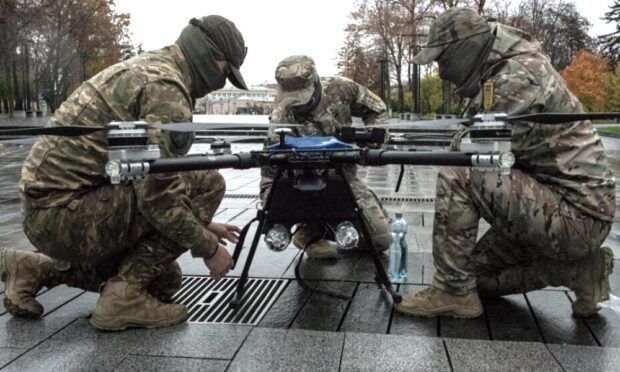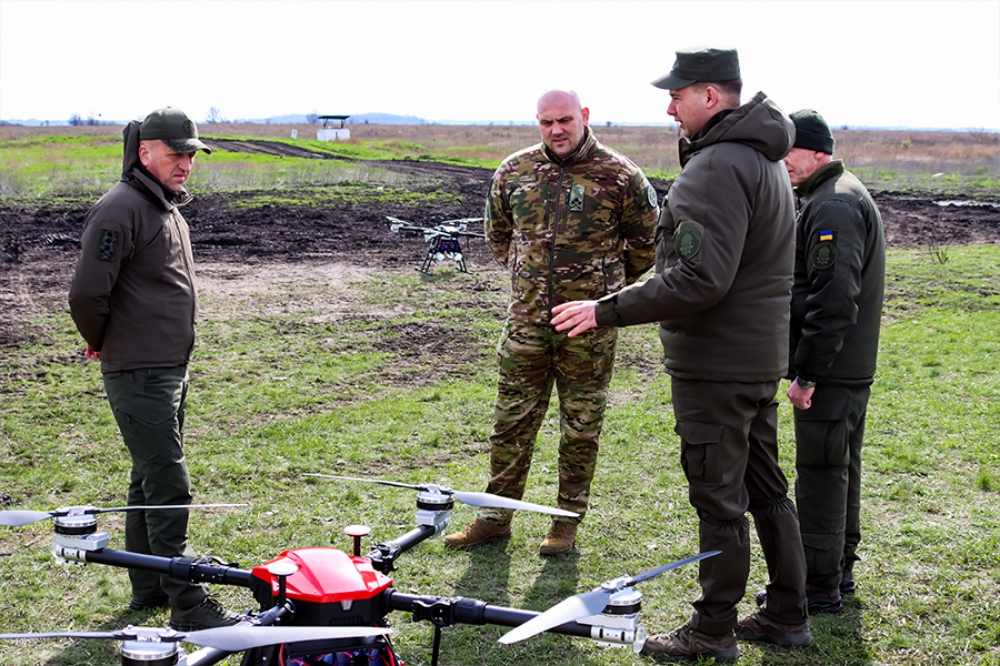Ukraine’s National Guard has released footage from its combat training, showing the operation of the Kazhan unmanned aerial vehicle. Although these aircraft have long been used by Ukrainian forces, there is little publicly available information about the systems.
The Ukrainian defense website Defense Express collected some of the most important facts and presents them in a new publication.
So What is Drone Kazhan?
Initially, the Kazhan is available in two versions: a four-propeller version and a six-propeller version. Regardless of version, Ukrainian military soldiers operating these drones seem to report similar combat performance.
According to them, Kazhan can stay in the air for 20 to 40 minutes, moving at a speed of up to 120 km/h. The drone can lift up to 20 kg of cargo, mostly explosives. Operators use 60mm, 82mm and 120mm mortar rounds, which they mount on the drone and drop on Russian equipment or personnel.
“If we have an enemy armoured vehicle up to 6 kilometers away, instead of using ten rounds of ammunition to destroy it, we use these drones. They fly to the exact location and drop explosives right on top of the enemy equipment,”
a soldier nicknamed Gorynych is said to have said.
The ejection mechanism is very simple: a belt with a ring holds the ammunition and when the lock is opened they fall out.
In a more recent publication from the Ukrainian posts in March of this year, a drone operator named Balu reported similar details about the use of the drone, but added that this UAV can deliver anti-tank mines and place them on the road remotely. So it essentially works like a remote control mining system.
Its name means “bat” and was given to the drone because it sports a thermal camera for night missions. It’s described as “simple but effective”, and it also has a ten-fold zoom camera for daytime outings. The use of the infrared light camera is clearly shown in the video below.
In open sources, reports of two versions of the UAV can be found: the Kazhan-1 version and the Kazhan-2 version. The exact differences are not described, but the former is said to be launchable from an all-terrain vehicle, while the latter is portable. Both were developed by the Ukrtekhno-Atom company in Ukraine.
Source: Penta Post Gamma


